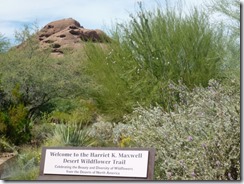Newly published authors often ask how to get readers on a mailing list for email newsletters. This process should start before you get a publisher. Once your book is sold, you’ll have an incredible amount of marketing to do. It’ll be helpful if you have already started collecting names. The approach is two-fold: online and in person.
I send my quarterly email newsletter to nearly 5000 readers, booksellers, and librarians. That’s nothing compared to a bestselling author, but to a newbie it may sound impressive. How did I gain these numbers? It didn’t happen overnight. It’s taken me years to build my lists.

Once you begin making public appearances, bring along a sign-up sheet to each event. I print out mine from Excel. One column is for the person’s full name. The other column is for their email address.
In the early days, I collected street addresses as well, but since the cost of postage has escalated, I no longer send postcards. Now all my mailings are online. However, if you plan to send out snail mail, you’ll need those home addresses. Or if you want to send a targeted email to fans announcing a signing or speaking engagement in their area, you’ll need their city and state.
So how else do you collect names, especially if you are unpublished? When you attend conferences and workshops, exchange business cards with everyone you meet. Today people are spam conscious, so ask if you may add the person to your email newsletter list. Jot a note on the back of the business card to remind you later where you met.

Sit with strangers at sponsored lunches or dinners and meet the people at your table. Hang out at the bar and give a friendly greeting to anyone wearing a conference badge. Introduce yourself to strangers while waiting in lines to go into a meal or to an event. Your mailing list will build this way, and over time you could gain lifelong fans.
After your book is published, you’ll receive fan mail. Ask if you may add the reader to your mailing list or direct them to your online opt-in form.
I categorize my lists so they separate into Booksellers, Contests, Fans, Librarians, Reviewers, and more. Why is this helpful? I might want to send a notice only to my readers when a new book comes out. Several months before, I might want to notify booksellers, librarians, and reviewers about an upcoming release. Friends, Family and other Authors are on my lists too, although I rarely bother them with announcements unless they have requested it.
Holding a contest is a great way to collect names for your lists. Rafflecopter is the easiest method. Go to http://www.rafflecopter.com/ and sign up for a free account. The program automatically does everything for you. You can add bonus entries and have people Like your Facebook page or tweet your contest. Create contest terms that state entrants will be entered into your mailing list. I have a contest running from now until Aug. 23 if you want to enter and see what I mean: https://nancyjcohen.com/fun-stuff/contest/.

You can join with other authors to offer a bigger prize and share mailing lists. For an example, visit Booklover’s Bench at http://bookloversbench.com, where I’ve joined with seven other writers. We offer monthly contests as well as excerpts and behind-the-scenes sections for you to learn more about us. We also cross-promote each other in our personal newsletters, offering giveaways from our colleagues. (I offer this as a bonus subscriber feature, so you have to subscribe to my newsletter to get the special contest offer.) Certainly my mailing lists numbers have increased as a result of our joint venture.
Another great site to hold a contest and gain a mailing list of usually over 1000 entrants is Fresh Fiction at http://www.freshfiction.com/. It costs $129 but if you do this once every few years, it adds substantially to your newsletter reader addresses.
When you accumulate too many names to send out individual emails, consider using a mass email newsletter program such as AWeber (http://www.aweber.com/), Constant Contact (http://www.constantcontact.com ), Mad Mimi (https://www.madmimi.com/), Mail Chimp (http://mailchimp.com/), Vertical Response (http://bit.ly/16u6fhl—This is what I use), or Your Mailing List Provider (http://www.ymlp.com/).
Start an Excel spreadsheet and keep your names and email addresses there. You can upload these worksheets to the programs above and then you also have a copy on your computer for backup.
I upload lists from my Excel program directly into Vertical Response. I pay for my newsletter per email but you can pay a monthly fee if you’d rather do so, depending on the volume of mail you want to send.
Put sign-up widgets on your website, blog, and Facebook page. Periodically request your fans on Facebook and Twitter to sign up for your mailing list. In case one of these social networking sites goes defunct, you don’t want to lose your friends. Back up your email lists on your computer, your flash drive, etc. They’re a valuable commodity, and you don’t want to lose them.
Once you accumulate enough names, how often should you send out a newsletter? I do mine quarterly. I can’t see sending one out more often. Generally, I accumulate my news until the next season rolls around. I don’t care to bombard people and respect their time, but other authors send monthly messages and that works for them.
What should you include in a newsletter? Your book news is a given—sales, new releases, extra editions, awards, and works in progress. Upcoming appearances including blog tour dates. Contests coordinated with your newsletter send-out date. Fun items like recipes or research notes. Social networking links. I’ll be happy to send you a copy of my latest newsletter if you email me. Pay careful attention to your subject header since that is what people will see in their Inbox. Getting recipients to open the email is more difficult. What methods do you use?
How else do you encourage people to sign up for your email lists?
NOTE: This post has been updated from the original version which first appeared at The Kill Zone, where I blog every other Wednesday. This is my week if you want to check this site out and visit on my day: http://killzoneauthors.blogspot.com
But more importantly, please go to my Website at https://nancyjcohen.com and sign up for my newsletter in the left-hand Sidebar.




























